Palgrave Studies in Political History
Editors: Prof. dr. Henk te Velde, Dr. Maartje Janse and Dr. Hagen Schulz-Forberg
The new book series Palgrave Studies in Political History is edited by members affiliated to the Association for Political History.
Palgrave Studies in Political History analyzes the changing forms and functions of political institutions, movements and actors, as well as the normative orders within which they navigate. Its ambition is to publish monographs, edited volumes and Pivots exploring both political institutions and political life at large, and the interaction between the two. The premise of the series is that the two mutually define each other on local, national, transnational, and even global levels.
Adriejan van Veen and Theo Jung, Depoliticisation before Neoliberalism. Contesting the Boundaries of the Political in Modern Europe (2025)
This book analyses processes of depoliticisation in modern Europe from the emergence of a distinct ‘political’ sphere in the late eighteenth century until the present day. Drawing on case studies from across the continent, it demonstrates that depoliticisation has played an integral part in the contestation of modern politics since its inception.
Arne I.A. Käthner, German Neoliberalism from 1924 to 1963. The Semantic Counter-revolution of Transnational Elite Networks (2024)
This book offers an in-depth study of German neoliberalism between 1924 and 1963, arguing that a neoliberal network was established in the interwar period, decades before elite networks in Great Britain and the United States fostered the ‘neoliberal revolution’ of the Thatcher and Reagan administrations.
Diego Palacios Cerezales and Oriol Luján (editors), Popular Agency and Politisation in Nineteenth-Century Europe: Beyond the Vote (2023)
This book provides an entry point to the most cutting-edge lines of research on popular political mobilisation in Europe. It brings together leading scholars from Germany, France, Britain, the Netherlands and Spain.
Judith Pollmann and Henk te Velde (editors), Civic Continuities in an Age of Revolutionary Change, 1750-1850 (2023)
This open access book explores the role of continuity in political processes and practices during the Age of Revolutions. It argues that the changes that took place in the years around 1800 were enabled by different types of continuities across Europe and in the Americas.
Pierre Karila-Cohen (editor), Prefects and Governors in Nineteenth-Century Europe. Towards a Comparative History of Provincial Senior Officials (2022)
This edited collection presents a pan-European history of intermediary government and administration in nineteenth-century Europe. Taking a closer look at senior government officials who represented the sovereign or state far away from the capital, the book highlights the intermediary nature of their roles, which fell somewhere between the municipality and central bureaucracy.
Jan Záhořík, Antonio M. Morone (editors), Histories of Nationalism beyond Europe. Myths, Elitism and Transnational Connections (2022)
This edited collection explores varying shapes of nationalism in different regional and historical settings in order to analyse the important role that nationalism has played in shaping the contemporary world. Taking a global approach, the collection includes case studies from Europe, the Far East, the Middle East, Africa, Asia and North America.
Anne Heyer, The Making of the Democratic Party in Europe, 1860–1890 (2022)
This book analyses the emergence of modern parties in nineteenth-century Europe and explores their connection with the slowly developing institution of democracy.
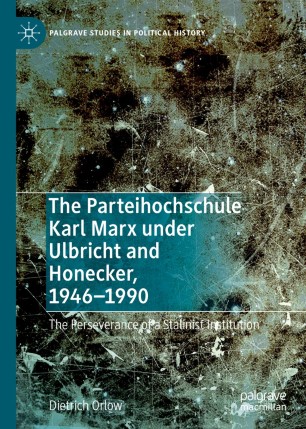
Dietrich Orlow, The Parteihochschule Karl Marx under Ulbricht and Honecker, 1946-1990. The Perseverance of a Stalinist Institution (2021)
Presenting the history of an unexplored yet significant institution in East Germany, this book analyses the development of the Parteihochschule Karl Marx (PHS), a training institute for Communist party officials and members of the functional elite.

Ilkka Kärrylä, Democracy and the Economy in Finland and Sweden since 1960. A Nordic Perspective on Neoliberalism (2021)
This book explores the relationship between democracy and the economy in contemporary political thought and policy-making. Using the concepts of economic, industrial and enterprise democracy, the author focuses on the history of Finland and Sweden during the latter part of the twentieth century.

Anne Zetsche, The Atlantik-Brücke and the American Council on Germany, 1952–1974. The Quest for Atlanticism (2021)
Revisiting the relationship between the USA and Germany following the Second World War, this book offers a new perspective and focuses on the influence of two organisations in accelerating West Germany’s integration into the Atlantic Alliance.

Giorgia Priorelli, Italian Fascism and Spanish Falangism in Comparison. Constructing the Nation (2020)
This book compares the Italian Fascist and the Spanish Falangist political cultures from the early 1930s to the early 1940s, using the idea of the nation as the focus of the comparison. It argues that the discourse on the nation represented a common denominator between these two manifestations of the fascist phenomenon in Mussolini’s Italy and Franco’s Spain.
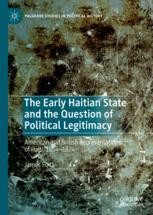
James Forde, The Early Haitian State and the Question of Political Legitimacy. American and British Representations of Haiti, 1804—1824 (2020)
This book explores the different ways in which the early Haitian state was represented in print culture in America and Britain in the early nineteenth century. This study demonstrates that American and British arguments about the most effective forms of governance and political leadership impacted how Haiti’s early leaders were presented to transatlantic audiences.
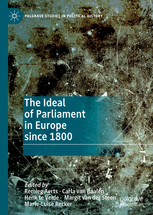
Remieg Aerts, Carla van Baalen, H. te Velde et al (eds.), The Ideal of Parliament in Europe since 1800 (2019)
This edited collection explores the perceptions and memories of parliamentarianism across Europe, examining the complex ideal of parliament since 1800. Parliament has become the key institution in modern democracy, and the chapters present the evolution of the ideal of parliamentary representation and government, and discuss the reception and value of parliament as an institution.
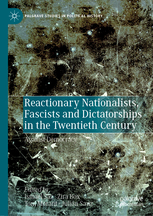
I. Saz, Z. Box, T. Morant & J. Sanz (eds.), Reactionary Nationalists, Fascists and Dictatorships in the Twentieth Century (2019)
This book provides a comparative study of fascisms and reactionary nationalisms. It presents these as transnational political cultures and examines the dictatorships and regimes in which these cultures played significant roles. The book is organised into three main sections, focusing on nationalists, fascists and dictatorships in turn.
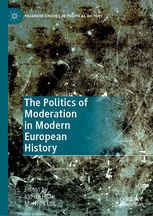
Ido de Haan & Matthijs Lok (eds.), The Politics of Moderation in Modern European History (2019)
This book charts the varieties of political moderation in modern European history from the French Revolution to the present day. It explores the attempts to find a middle way between ideological extremes, from the nineteenth-century Juste Milieu and balance of power, via the Third Ways between capitalism and socialism, to the current calls for moderation beyond populism and religious radicalism.
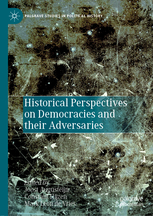
Joost Augusteijn, Constant Hijzen & Mark Leon de Vries (eds.), Historical Perspectives on Democracies and their Adversaries (2019)
Democracies across the world increasingly find themselves under threat from enemies, ranging from terrorists to parties and movements that undermine democratic institutions from within. This book provides the first historical exploration of how democracies have dealt with such anti-democratic forces and how this impacted upon what democracy meant to all involved.
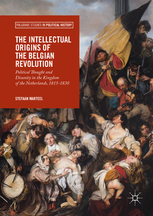
Stefaan Marteel, The Intellectual Origins of the Belgian Revolution. Political Thought and Disunity in the Kingdom of the Netherlands, 1815-1830 (2018)
This book explores the political ideas of the Belgian Revolution of 1830, which led to the break-up of the Restoration state of the ‘united’ Kingdom of the Netherlands. It provides an in-depth study of the political languages of the major political groups in the Southern Netherlands and offers a fresh perspective to the historiographic debate on Belgian nationalism.
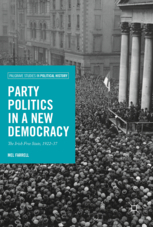
Mel Farrell, Party Politics in a New Democracy. The Irish Free State, 1922-37 (2017)
This book offers a timely, and fresh historical perspective on the politics of independent Ireland. Interwar Ireland’s politics have been caricatured as an anomaly, with the distinction between Fianna Fáil and Fine Gael bewildering political commentators and scholars alike. It is common for Ireland’s politics to be presented as an anomaly that compare unfavourably to the neat left/right cleavages evident in Britain and much of Europe.
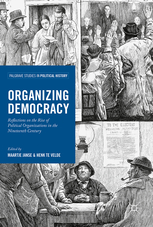
Henk te Velde and Maartje Janse (eds.), Organizing Democracy. Reflections on the Rise of Political Organizations in the Nineteenth Century (2017)
This book explores the new types of political organization that emerged in Western Europe and the United States during the nineteenth century, from popular meetings to single-issue organizations and political parties. The development of these has often been used to demonstrate a movement towards democratic representation or political institutionalization.
